
Doo-wop is a subgenre of rhythm and blues music that originated in African-American communities during the 1940s, mainly in the large cities of the United States, including New York, Philadelphia, Pittsburgh, Chicago, Baltimore, Newark, Detroit, Washington, D.C., and Los Angeles. It features vocal group harmony that carries an engaging melodic line to a simple beat with little or no instrumentation. Lyrics are simple, usually about love, sung by a lead vocal over background vocals, and often featuring, in the bridge, a melodramatically heartfelt recitative addressed to the beloved. Harmonic singing of nonsense syllables is a common characteristic of these songs. Gaining popularity in the 1950s, doo-wop was "artistically and commercially viable" until the early 1960s and continued to influence performers in other genres.
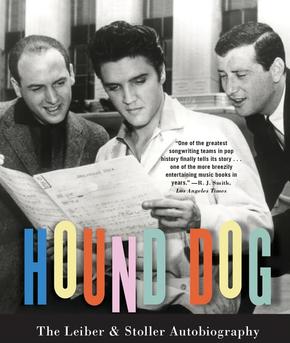
Leiber and Stoller were an American songwriting and record production duo, consisting of lyricist Jerome Leiber and composer Michael Stoller. As well as many R&B and pop hits, they wrote numerous standards for Broadway.

Barry Mann is an American songwriter and musician, and was part of a successful songwriting partnership with his wife, Cynthia Weil.

The Clovers are an American rhythm and blues/doo-wop vocal group who became one of the biggest selling acts of the 1950s. They had a top 30 US hit in 1959 with the Leiber and Stoller song "Love Potion No. 9".
Doo Wop 50 is a television and DVD special created and produced by TJ Lubinsky. The special was inspired by a 1994 CD box-set of doo wop music which was also a development and production partner WQED in the program and dvd. It aired in December 1999.
George Goldner was an American record label owner, record producer and promoter who played an important role in establishing the popularity of rock and roll in the 1950s, by recording and promoting many groups and records that appealed to young people across racial boundaries. Among the acts he discovered were the Crows, Frankie Lymon and the Teenagers, and Little Anthony and the Imperials.
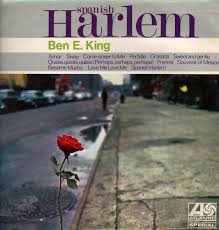
"Spanish Harlem" is a song recorded by Ben E. King in 1960 for Atco Records. It was written by Jerry Leiber and Phil Spector and produced by Jerry Leiber and Mike Stoller. "Spanish Harlem" was King's first hit away from The Drifters, peaking at number 15 on Billboard's rhythm and blues and number 10 in pop music chart.

Gonna Take a Miracle is the fifth album by New York City-born singer, songwriter and pianist Laura Nyro, with assistance by vocal trio Labelle. It was released on Columbia Records in November 1971, one year after its predecessor Christmas and the Beads of Sweat. The album is Nyro's only all-covers album, and she interprets mainly 1950s and 1960s soul and R&B standards, using Labelle as a traditional back-up vocal group.

Liv is the second studio album by the rock artist Livingston Taylor. It was released in 1971 on Capricorn Records. The album's eleven tracks include ten of Taylor's own songs, and a cover rendition of "On Broadway".

Eleanor Louise Greenwich was an American pop music singer, songwriter, and record producer. She wrote or co-wrote "Da Doo Ron Ron", "Be My Baby", "Maybe I Know", "Then He Kissed Me", "Do Wah Diddy Diddy", "Christmas ", "Hanky Panky", "Chapel of Love", "Leader of the Pack", and "River Deep – Mountain High", among others.
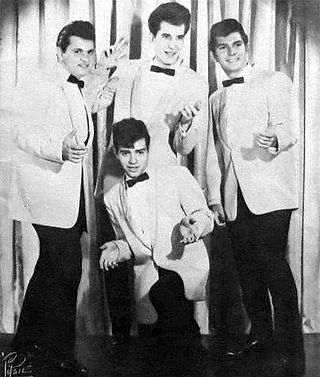
The Earls, often credited as Larry Chance and the Earls, is an American popular music group formed in The Bronx, New York. In a career spanning over 60 years they formed in the early 1960s, though their roots can be traced back to 1957 in a group called the High-Hatters. They were one of the most accomplished white doo-wop groups of the early 1960s, especially in their home state of New York. In 1962, they became known for their signature hit single "Remember Then", which still remains a staple of doo-wop music. Later in their career they experienced moderate success with songs such as "Life Is But a Dream", "Never" and "I Believe". In the 1970s and 1980s, an oldies revival scene began and the Earls re-experienced success and became one of the most requested popular groups in the doo-wop genre. The group still continues to perform.
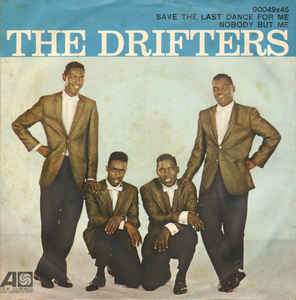
"Save the Last Dance for Me" is a song written by Doc Pomus and Mort Shuman, first recorded in 1960 by American musical group the Drifters with Ben E. King on lead vocals. It has since been covered by several artists, including the DeFranco Family, Dolly Parton, and Michael Bublé.
Grady Chapman was best known as the American lead singer of doo wop group The Robins.

Acoustic Trio Live in Berlin is a 2002 album by Willy DeVille. The album consists of concert recordings made in Berlin to celebrate DeVille’s 25 years of performing, and concert recordings made in Stockholm. Buscadero, the Italian music magazine, named Acoustic Trio Live in Berlin one of the top-ten albums of 2002 in its critics' poll; its readers' poll named the album the 21st best album of 2002.

The Earth Angels are a Spanish doo-wop vocal group from Barcelona, Catalonia which performs a cappella music. On tour, they also sing on city streets. The group formed in 2007, when bass-baritone Christian Carrasco announced that he was looking for a doo-wop singer and found lead vocalist Jordi Majó.
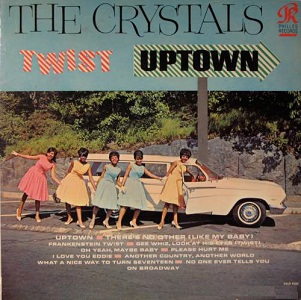
Twist Uptown is the first studio album by the Crystals, as well as the first album issued on Philles Records. It was released in August 1962 to capitalize upon their success with the Cynthia Weil and Barry Mann composition "Uptown" which was a #13 US hit, and their first top forty hit "There's No Other ". Twist Uptown notably features the first released version of "On Broadway," a composition written by Cynthia Weil and Barry Mann. The song was later modified by Jerry Leiber and Mike Stoller and became a hit for The Drifters in 1963.
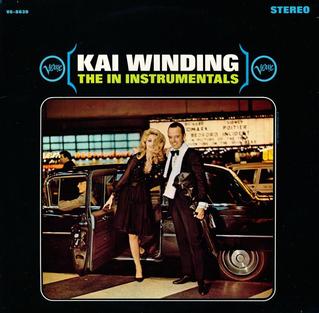
The In Instrumentals is an album by jazz trombonist and arranger Kai Winding recorded in 1965 for the Verve label.

Looking Back – The Best of Daryl Hall + John Oates is a compilation album by American pop rock duo Daryl Hall and John Oates. It was released in 1991. It contains tracks from ten Hall & Oates albums spanning 1973's Abandoned Luncheonette to 1990's Change of Season.

Though the music itself developed in African-American communities, the Jewish influence in rhythm and blues, particularly in terms of the music's presentation to a wider audience, was important. According to the Jewish writer, music publishing executive, and songwriter Arnold Shaw, during the 1940s in the United States there was generally little opportunity for Jews in the WASP-controlled realm of mass communications, but the music business was "wide open for Jews as it was for blacks". Jews played a key role in developing and popularizing African American music, including rhythm and blues, and the independent record business was dominated by young Jewish men, and some women, who promoted the sounds of black music.

Come a Little Bit Closer is the third studio album by the American rock group Jay and the Americans, released in 1964 by United Artists Records.

















